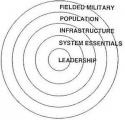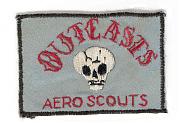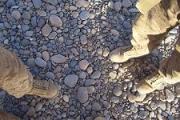Hi Sam,
Get's us back to Clausewitz doesn't it? Yeah, I agree that the devil is in the details when it comes to applying the concept. Personally, I don't know who the ones in Iraq are... then again, I've never claimed to have that granular level of knowledge
.
The entire issue, though, does raise some interesting points. For example, even without knowing the specifics in an area, and what the actual meaning(s) of those specifics is/are (i.e. what does it actually mean today in terms of operations), if you have the concept, you can get the data either by asking people who know (that's the Socratic in me!) or by looking for structural similarities / analogs. Of course, figuring out what it means is crucial and how it gets transformed is critical to actually using it.
The flip side is getting hung up on concepts and structures that are much less operationally relevant and focusing on them to the detriment of the long term goal. One of the problems that I've noticed with a lot of political / military writing about cultural phenomenon is the implied assumption that culture is static rather than constantly being negotiated (another problem is the naive idea that "We" aren't ruled by it, but "They" are - hah! We should get Rob Thornton in on this one).
Anyway, I've got to get back to work (sigh).
Cheers,
Marc













Bookmarks